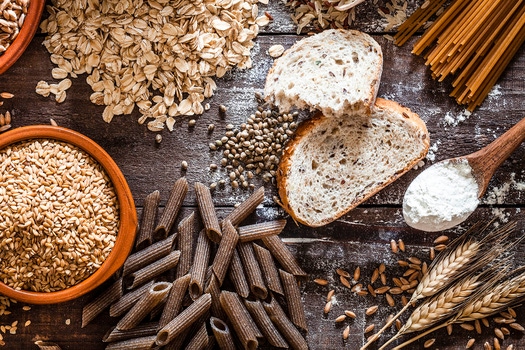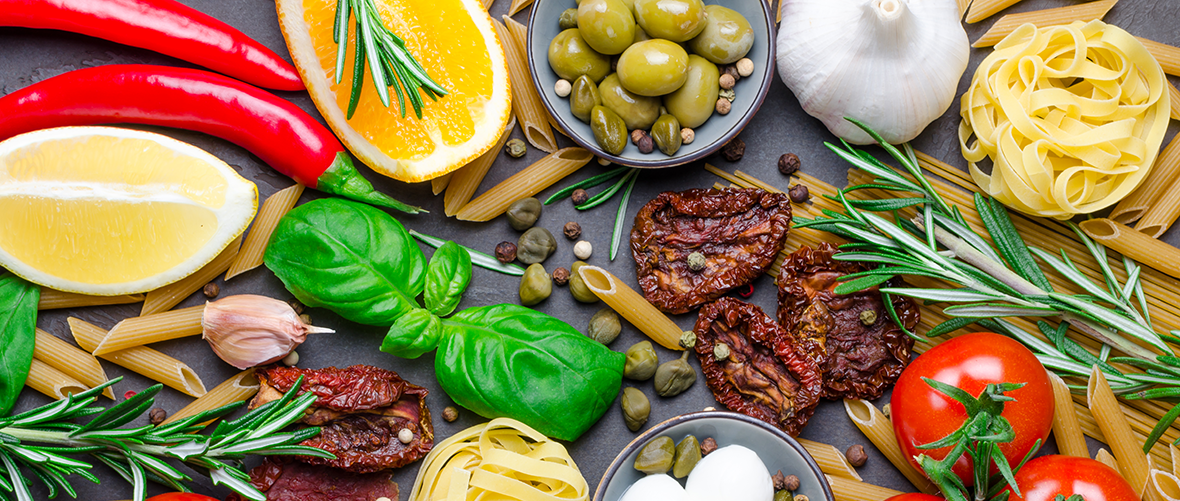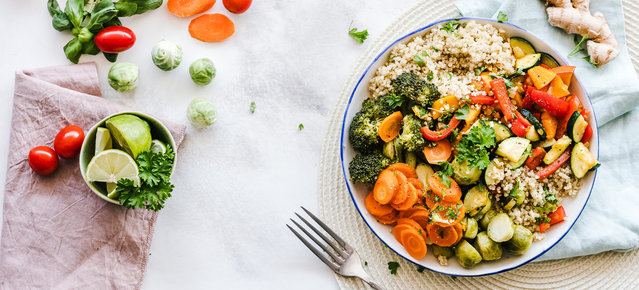
Food in focus: Wholegrains and immunity
When we think of foods to help keep the winter sniffles at bay we normally think of fruit and vegetables such as citrus and leafy greens or spices such as garlic, ginger and turmeric. However, another helpful pantry staple to add to this cold fighting brigade is wholegrains.
Examples of wholegrains include wheat, oats, buckwheat, rye, barely, sorghum and quinoa, and the foods made from them. Enjoying a balanced diet including foods rich in prebiotics, such as wholegrains and high fibre foods, helps to support our immune system to fight and avoid common infections like cold and flu.
Here are 3 ways wholegrains help support immunity and keep you feeling great…
Packed with nutrients
Wholegrains are made up of fibre-rich bran, nutrient-packed germ, starchy endosperm. It’s the combination of all these elements provides more than 26 nutrients and powerful plant compounds including dietary fibres, vitamins, minerals and a range of protective phytonutrients.
Improved gut health
Wholegrains is one of the best ways to get nutrients that play an essential role in immune function including folate, thiamin, niacin, magnesium, iron, zinc and protein.
Did you know? Our immune system and our gut microbiota (the bacteria in our gut) work together to defend our bodies against invaders – preventing harmful bacteria, or pathogens, from living in our gut.
Good mood food
Our gut health can also influence our mood. Most wholegrains contain resistant starch, a type of dietary fibre that acts as food for the good bacteria in our gut. The good bacteria then produce beneficial substances known as short-chain fatty acids, which may play a role in regulating our mood among many other beneficial effects, including supporting our immune system and maintaining overall health.
Research suggests that following a Mediterranean diet high in plant foods such as wholegrains, legumes, polyphenol-rich fruits and vegetables, nuts, olive oil, as well as fish and small amounts of meat and dairy, is associated with better overall mental wellbeing, increased concentration and lower likelihood of depressive and anxiety disorders, most likely due to the anti-inflammatory nature of the diet.
While there is no one food on its own that will lead to great immune health, it is clear that wholegrains play an important part in supporting our immune system.
Need some help to get more wholegrains into your diet? Try these tips, swaps and delicious recipes.
Top your smoothie bowl with a generous sprinkle of wholegrain breakfast cereal.
Choose wholegrain bread or wraps for lunchbox favourites.
Try wholegrain crackers with peanut butter or avocado as an afternoon snack; much better than diving into the biscuit barrel.
Simple dinner swaps start with switching white pasta and rice for wholemeal pasta and brown rice. If fussy eaters are hard to please, slowly introduce the wholegrain versions with a 50/50 mix.
Add on-trend grains quinoa or buckwheat to a winter salad and make warming winter soups extra hearty with a handful of pearl barley.
Wholegrains are easy to add to meals throughout the day. Check out our wholegrains recipe collection featuring gut-friendly wholegrain foods that are also quick and easy to make. From pizzas to hearty soups, winter salads and warming brekkies, it’s a no grainer!

The latest nutrition advice, plus health and wellness tips delivered to your inbox monthly


